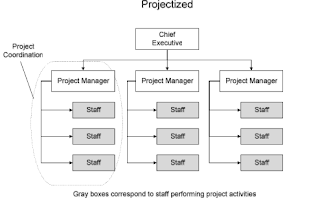There are five Project management
process groups in Project. They all interact with each other as per
requirement. Its order may vary as per Project or Organisation.
Project management processes are
connected by inputs/outputs. Output of the one process may be input for the
other process. Process groups are not project management life cycle phases. Process
groups may be processed during phases like requirements, planning, design etc.
Classic Project management process
groups are: Initiating, Planning, Executing, Monitoring and controlling, and
Closing.
Initiating:
"The Initiating Process
Group consists of those processes performed to define a new project or a phase
of an existing project by obtaining authorization to start the project or
phase." – A Guide to the Project Management Body of Knowledge (PMBOK Guide)
To begin work, approval and
project definition required. That’s the goal of this group. Initial scope of
work is defined and Project charter needs to be made here. Project manager is
also assigned to the Project. High level
requirement is also prepared and define constraints and assumptions.
Large project is divided in the
phases. Scope, cost to be decided and risk to be identified.
Here, the main goal is to prepare
project charter. Success criteria is low and risk factors are high at initial
level.
Planning:
"The Planning Process
Group consists of those processes required to establish the scope of the
project, refine the objectives and define the course of action required to
attain the objectives that the project was undertaken to achieve." – A
Guide to the Project Management Body of Knowledge (PMBOK Guide)
Planning is the never ending process that take place in the project. This
includes project management plan and other plans like scope, time, cost,
quality, human resource, communication, risk, staff etc. WBS is created from
the Project requirement.
Here, the main goal is to prepare Project management plan.
Executing:
"The Executing Process
Group consists of those processes performed to complete the work defined in the
project management plan to satisfy the project specifications." – A
Guide to the Project Management Body of Knowledge (PMBOK Guide)
During execution, project management
plan may require updates or replanning. It includes hold meeting, manage and
develop Project team, manage stakeholder expectation. Project Manager can use
good tools for project management, quality management, cost management etc.
Here, the main goal is to Direct
and manage project work.
Monitoring and Controlling:
"The Monitoring and
Controlling Process Group. Those processes required to track, review and
regulate the progress and performance of the project; identify any areas in
which changes to the plan are required; and initiate the corresponding
changes." –A Guide to the Project Management Body of Knowledge (PMBOK Guide)
It evaluate the project performance and take care of change requests, defects
and how to prevent against them. It includes to control scope, time, cost,
changes, risks etc. It measure the performance criteria of the project. Project
manager can use good Performance measurement tools, cost and plan management
techniques.
Here, the main goal is to Monitor and control work and perform integrated
change control.
Closing:
"The Closing Process
Group consists of those processes performed to finalize all activities across
all the Process Groups to formally close the project or phase." – A Guide to the Project Management
Body of Knowledge (PMBOK Guide)
It includes to close all
activities of the project, obtain acceptance confirmation from customer, team
assessment, documents all lesson learned, final product verification and
performance verification, make all project document archives.
If project was successful then as
a Project manager, the final step is the Celebration for your project
management and team efforts.















